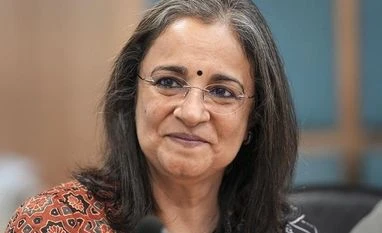These changes would be based on the recommendations made by a committee formed by the capital markets regulator on ESG regulations, said Sebi Chairperson Madhabi Puri Buch.
Speaking at a seminar organised by National Productivity Council, Buch noted at international forums, Sebi has been discussing that emerging economies like India should have an independent view on ESG matters, apart from global standards.
“It is critical to convert intensity on the purchasing power parity basis in the energy market,” she said.
Currently, the BRSR is benchmarked to global standards. However, Sebi is of the view that there should also be a focus on what is important for the Indian markets.
“We will follow the global alignment, along with adapting our metrics and reporting, to have a narrative for the energy markets, based on what is relevant and material to our markets,” said Buch.
The market watchdog is also firming up regulations for an ESG rating mechanism to ensure a complete disclosure and avoid greenwashing. ESG rating providers will be giving scores to every company.
As the ESG space is still evolving and clear goals have not emerged in global economies, the Sebi chair said that it is important to have disclosures, structure, and assurance in the segment, especially for mutual funds.
These ratings would help investment decisions by mutual funds with ESG themes. Currently, nine fund houses have ESG thematic schemes, the biggest being managed by SBI Mutual Fund with assets under management of around Rs 4,700 crore.
Buch also voiced the disparity that a single carbon credit market pricing could bring for low-income economies. “There is a need to maintain the independence of our carbon credits. It is not desirable that there should be a single price of carbon credits across the globe. Developed economies should assist emerging economies and there should be a just transition,” she added.
Sebi issued a discussion paper in January this year, proposing products like ESG Corporate Risk Ratings, ESG Financial Risk Ratings, and ESG Impact Ratings.
“Mandate on ESG disclosures will ensure data availability -- a key challenge faced when it comes to the assessment of ESG performance. Data availability will enable assessing ESG risks as well as monitoring of the same in the investment portfolio,” said Rama Patel, director, CRISIL Ratings.
Globally, the European Securities and Markets Authority (ESMA) published a consultation paper on ESG rating providers operating in the European Union (EU) in February while Japan’s Financial Services Agency (FSA) published a draft code of conduct for ESG Evaluation and Data Providers for public comments in July 2022.
To read the full story, Subscribe Now at just Rs 249 a month
Already a subscriber? Log in
Subscribe To BS Premium
₹249
Renews automatically
₹1699₹1999
Opt for auto renewal and save Rs. 300 Renews automatically
₹1999
What you get on BS Premium?
-
Unlock 30+ premium stories daily hand-picked by our editors, across devices on browser and app.
-
Pick your 5 favourite companies, get a daily email with all news updates on them.
Full access to our intuitive epaper - clip, save, share articles from any device; newspaper archives from 2006.
Preferential invites to Business Standard events.
Curated newsletters on markets, personal finance, policy & politics, start-ups, technology, and more.
Need More Information - write to us at assist@bsmail.in
)